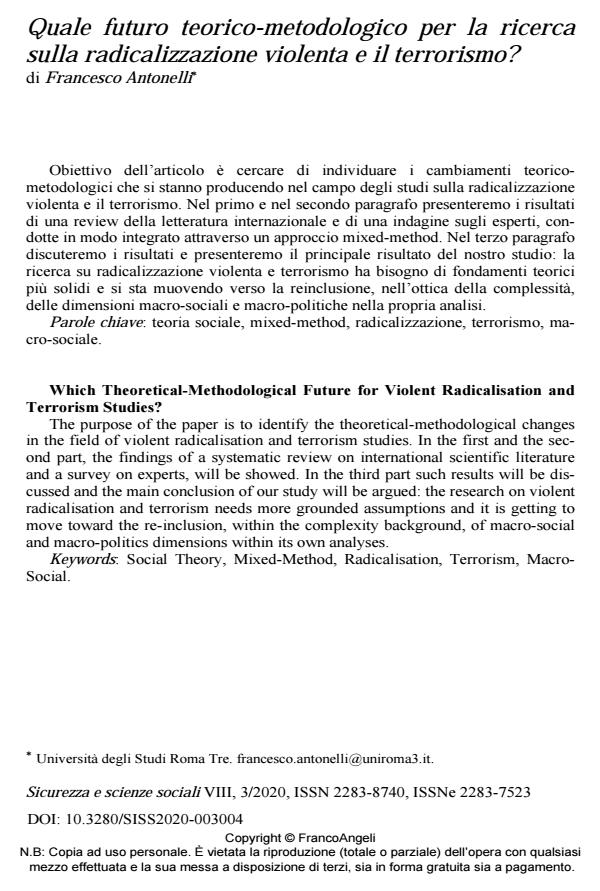Which Theoretical-Methodological Future for Violent Radicalisation and Terrorism Studies?
Journal title SICUREZZA E SCIENZE SOCIALI
Author/s Francesco Antonelli
Publishing Year 2021 Issue 2020/3
Language Italian Pages 15 P. 21-35 File size 200 KB
DOI 10.3280/SISS2020-003004
DOI is like a bar code for intellectual property: to have more infomation
click here
Below, you can see the article first page
If you want to buy this article in PDF format, you can do it, following the instructions to buy download credits

FrancoAngeli is member of Publishers International Linking Association, Inc (PILA), a not-for-profit association which run the CrossRef service enabling links to and from online scholarly content.
The purpose of the paper is to identify the theoretical-methodological changes in the field of violent radicalisation and terrorism studies. In the first and the sec-ond part, the findings of a systematic review on international scientific literature and a survey on experts, will be showed. In the third part such results will be dis-cussed and the main conclusion of our study will be argued: the research on vio-lent radicalisation and terrorism needs more grounded assumptions and it is getting to move toward the re-inclusion, within the complexity background, of macro-social and macro-politics dimensions within its own analyses.
Keywords: Social Theory, Mixed-Method, Radicalisation, Terrorism, Macro-Social.
Francesco Antonelli, Quale futuro teorico-metodologico per la ricerca sulla radicalizzazione violenta e il terrorismo? in "SICUREZZA E SCIENZE SOCIALI" 3/2020, pp 21-35, DOI: 10.3280/SISS2020-003004